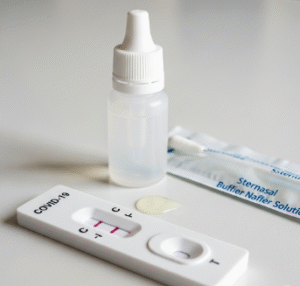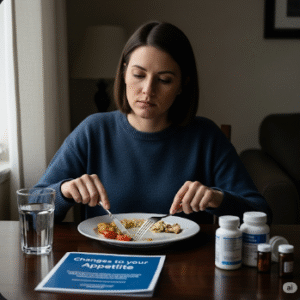Overview
Anxiety Disorder is a group of mental health conditions characterized by excessive fear, worry, or nervousness that interferes with daily life. While occasional anxiety is a normal part of life, anxiety disorders involve persistent, intense feelings that are difficult to control and often disproportionate to the actual situation. It can affect physical health, work performance, relationships, and overall quality of life.
What is Anxiety Disorder?
Anxiety Disorder refers to a spectrum of psychiatric conditions where anxiety is the dominant symptom. The main types include Generalized Anxiety Disorder (GAD), Panic Disorder, Social Anxiety Disorder, Specific Phobias, and Separation Anxiety Disorder. These conditions often co-exist with depression or other mood disorders and may be triggered by stress, trauma, or genetics.
People with anxiety disorders may experience panic attacks, avoid certain situations, or constantly feel on edge without any identifiable cause.
Symptoms
Symptoms can vary depending on the type of anxiety disorder but commonly include:
- Excessive and persistent worry
- Restlessness or feeling “on edge”
- Difficulty concentrating
- Muscle tension or headaches
- Irritability
- Sleep disturbances (insomnia or restless sleep)
- Rapid heartbeat, sweating, or trembling
- Shortness of breath or chest tightness
- Avoidance of anxiety-provoking situations
Causes
The exact causes of anxiety disorders are complex and multifactorial:
- Genetics: Family history of anxiety or other mental health disorders
- Brain Chemistry: Imbalances in neurotransmitters like serotonin and dopamine
- Trauma: Abuse, neglect, or significant emotional distress in early life
- Stress: Prolonged exposure to high-stress environments
- Personality Traits: Perfectionism, low self-esteem, or a tendency to overthink
- Health Conditions: Thyroid issues, heart problems, or chronic illness
Risk Factors
- Family history of anxiety or depression
- Childhood trauma or abuse
- Chronic illness or serious medical conditions
- Ongoing stress at work, school, or in relationships
- Substance abuse
- Female gender (anxiety disorders are more common in women)
- Shyness or social inhibition
Complications
- Depression and mood disorders
- Substance abuse and dependency
- Sleep disturbances or insomnia
- Difficulty in work, school, or relationships
- Digestive or gastrointestinal problems
- Increased risk of heart disease or high blood pressure
- Suicidal thoughts or behaviors in severe cases
Prevention
While anxiety disorders can’t always be prevented, you can reduce the risk or severity by:
- Managing stress through mindfulness or relaxation techniques
- Maintaining regular sleep and physical activity routines
- Avoiding alcohol, caffeine, and recreational drugs
- Seeking support early for emotional or psychological distress
- Strengthening social connections and support systems
Treatment Options in Korea
South Korea offers advanced mental health services for anxiety disorders, blending modern psychiatry with supportive therapies.
1. Diagnosis
- Comprehensive psychiatric evaluation
- Screening tools like GAD-7 or Hamilton Anxiety Rating Scale
- Assessment of co-occurring disorders such as depression or OCD
2. Psychotherapy
- Cognitive Behavioral Therapy (CBT): The most effective therapy for anxiety, helping patients challenge irrational fears and develop coping skills
- Exposure Therapy: Used for phobias or social anxiety
- Mindfulness-Based Therapy: Teaches awareness and control over anxious thoughts
3. Medication
- SSRIs (Selective Serotonin Reuptake Inhibitors): Such as fluoxetine or escitalopram
- SNRIs (Serotonin-Norepinephrine Reuptake Inhibitors): Like venlafaxine
- Benzodiazepines: Used short-term for severe anxiety or panic attacks
- Beta-blockers or buspirone: For specific symptoms like rapid heartbeat
4. Lifestyle & Self-Care
- Exercise, yoga, and meditation
- Balanced diet and reduced stimulant intake
- Journaling and emotional expression
- Relaxation techniques like breathing exercises













